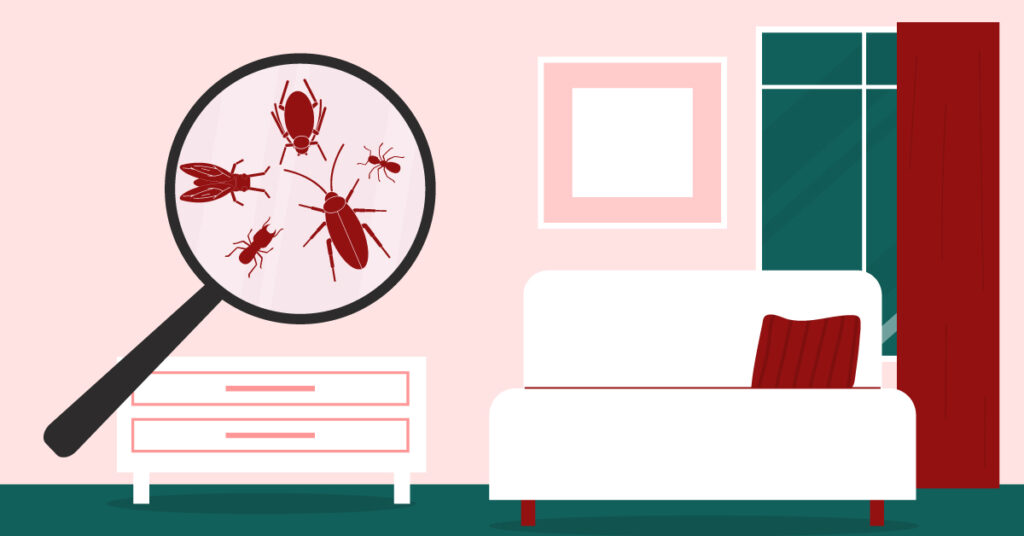Pesticides have become an integral part of modern agriculture, crucially controlling pests and boosting crop yields. However, the overuse of pesticides poses significant risks to the environment and human health. We’ll discuss the dangers of excessive pesticide use and explore alternative practices for sustainable pest management.
Understanding Pesticides
Pesticides are known as chemical substances that kill or control pests, including insects, weeds, fungi, and rodents. They are categorized into several types:
Insecticides: Target insects that damage crops.
Herbicides: Control unwanted vegetation and weeds.
Fungicides: Combat fungal infections in plants.
Rodenticides” Manage rodent populations.
While pesticides are effective in pest control, their overuse can lead to numerous adverse effects.
Environmental Risks of Pesticide Overuse

Using pesticides and the harm they do to the environment present several risks. Here are a few of the top risks.
1. Soil Degradation
Excessive pesticide use can alter the natural nutrient balance in the soil, reducing its fertility. This imbalance can result in poorer crop yields over time.
Pesticides can kill beneficial soil microorganisms that are vital in nutrient cycling and soil health. The loss of these microorganisms can lead to soil degradation and reduced agricultural productivity.
2. Water Contamination
Pesticides can be carried away by runoff into nearby water bodies, contaminating rivers, lakes, and groundwater. Leaching can also occur, where pesticides seep through the soil and reach the water table.
Contaminated water can harm aquatic organisms, disrupt ecosystems, and lead to declining fish and other aquatic species. Pesticides can also build up in the tissues of aquatic animals, posing risks to predators higher up the food chain.
3. Biodiversity Loss
Pesticides often do not discriminate between target pests and non-target species. Beneficial insects like bees, butterflies, and natural pest predators can be harmed or killed by pesticide exposure.
Pesticide overuse can destroy habitats for various wildlife species. The decline in plant diversity due to herbicides can reduce animal food and shelter, leading to biodiversity loss.
4. Pest Resistance
Continuous exposure to pesticides can lead to the evolution of pest populations that are resistant to the chemicals. These resistant strains can be more difficult to control, leading to a cycle of increasing pesticide use and resistance.
Health Risks of Pesticide Overuse
Not only do pesticides harm the environment, they can also be harmful to your overall health. It is important to be aware of the below implications of overusing pesticides.
1. Acute Health Effects
Poisoning
Exposure to high levels of pesticides can cause acute poisoning in humans. Symptoms may include headaches, dizziness, nausea, vomiting, and, in severe cases, respiratory distress or death.
Skin and Eye Irritation
Direct contact with pesticides can cause skin rashes, burns, and eye irritation.
2. Chronic Health Effects
Cancer
Long-term exposure to certain pesticides has a link to an increased risk of various cancers, including lymphoma and cancers of the brain, leukemia, breast, prostate, and lungs.
Endocrine Disruption
Some pesticides can interfere with the endocrine system, affecting hormone regulation. This disruption can lead to reproductive issues, developmental problems, and other health disorders.
Neurological Disorders
Chronic pesticide exposure has been associated with neurological disorders such as Parkinson’s disease, Alzheimer’s disease, and cognitive impairments.
3. Vulnerable Populations
Children
Children are particularly vulnerable to pesticide exposure due to their developing bodies and higher intake of air, food, and water relative to their small body weight. Exposure can lead to various issues such as developmental delays, learning disabilities, and behavioral issues.
Farm Workers
Farm workers and those living near agricultural areas are at higher risk of pesticide exposure. Protective measures and regulations are crucial to safeguard these populations from the adverse health effects of pesticides.
Sustainable Alternatives to Pesticide Overuse
1. Integrated Pest Management (IPM)
Combining Methods: IPM combines biological, cultural, physical, and chemical methods to control pests. This approach minimizes reliance on pesticides and promotes sustainable pest management.
Monitoring and Identification: Regular monitoring and accurate identification of pests help in applying the right control measures at the right time, reducing unnecessary pesticide use.
2. Biological Control
Natural Predators: Inviting natural predators, such as ladybugs, spiders, and predatory beetles, can help control pest populations.
Parasites and Pathogens: Introducing beneficial parasites and pathogens that target specific pests can reduce pest numbers without harming the environment.
3. Cultural Practices
Crop Rotation: Rotating crops disrupts pest life cycles and reduces the buildup of pest populations in the soil.
Resistant Varieties: Planting pest-resistant crop varieties can reduce the need for chemical interventions.
4. Physical and Mechanical Control
Barriers and Traps: Using physical barriers, such as nets and row covers, can protect crops from pests. Traps can be used to monitor and control pest populations.
Handpicking: Manual removal of pests can be effective for small-scale farming or garden operations.
5. Organic Farming
Natural Pesticides: Organic farming relies on natural pesticides, such as neem oil and diatomaceous earth, which are less harmful to the environment and human health.
Soil Health: Maintaining soil health through composting and organic amendments can improve plant resilience to pests and diseases.
Conclusion
The overuse of pesticides poses significant risks to the environment and human health. Some of the environmental consequences are soil degradation, water contamination, biodiversity loss, and pest resistance. Acute and chronic health effects, particularly for vulnerable populations, highlight the need for caution and regulation in pesticide use.
Sustainable alternatives, such as Integrated Pest Management, biological control, cultural practices, physical and mechanical control, and organic farming, offer viable solutions to reduce pesticide reliance. By adopting these methods, we can protect the environment, safeguard public health, and promote sustainable agricultural practices for future generations.Y
ou might also be interested in: Preventing Pests in the Kitchen: 9 Tips for Maintaining a Bug-Free Pantry




